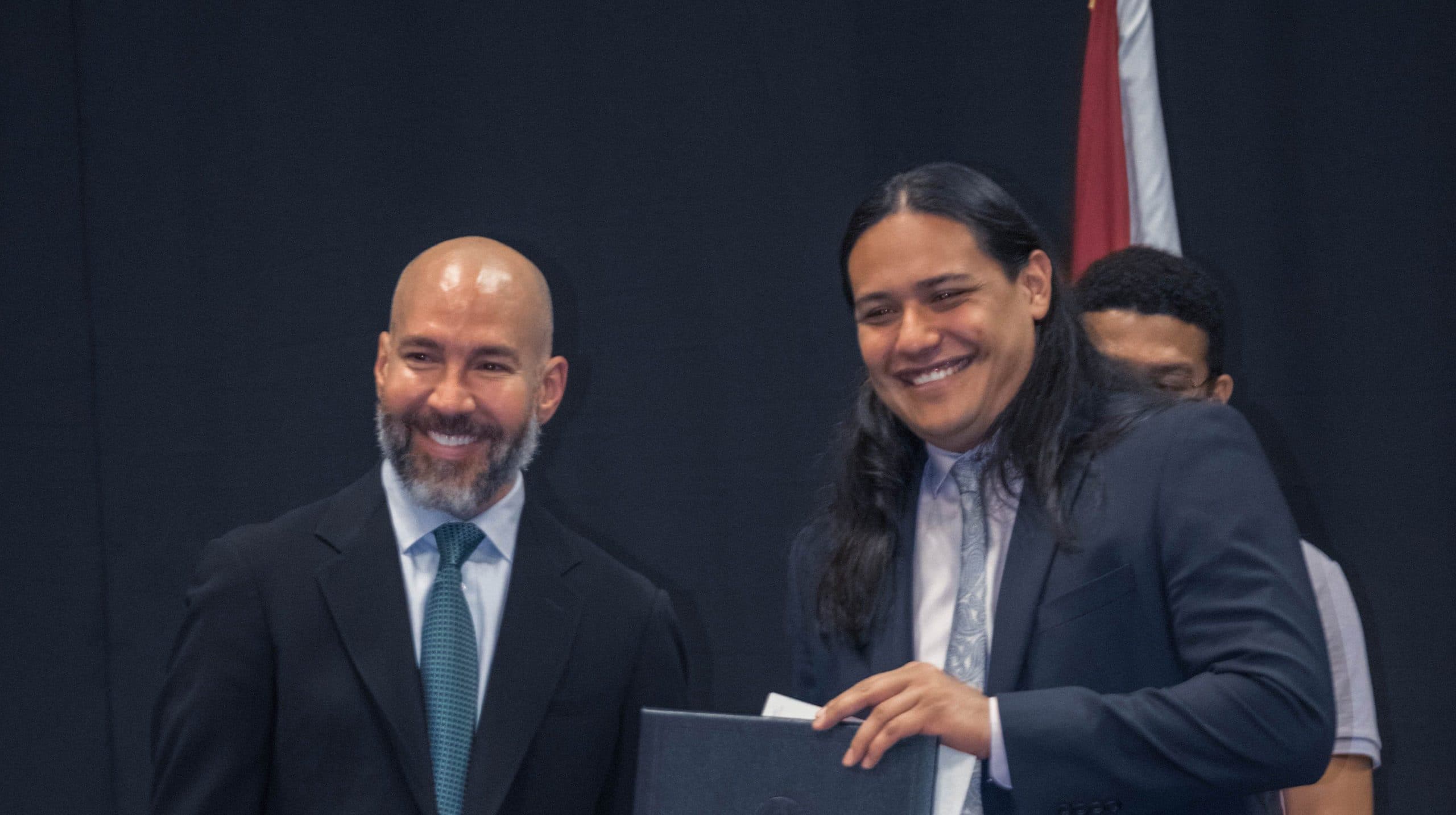It’s easy for David Solarte to talk about “social engineering,” one of his favorite aspects of the University of Miami Cybersecurity Bootcamp.
Social engineering is a method used by hackers and cyber criminals. It is the act of deceiving and manipulating individuals and coercing them into revealing or divulging confidential or personal information. Once obtained, this information can then be used for fraudulent or malicious purposes. Social Engineering tactics can range from the sophisticated data mining of social media platforms and profiles to deceptive phone calls or even in-person interactions. The method plays on one of the weakest links in the cybersecurity chain – people.
In a real world application, David is applying a noted trend to his studies, “I keep seeing these trends for increased transparency. Companies are releasing transparency reports, all of these good intentions and desire for transparency can be exploited by cyber criminals. There is going to have to be a balance between transparency and security.”
A Man of Few Words
Though David is technically a millennial, he doesn’t share the same devotion to social media and is much more private than others in his generation.
“I just don’t know why people would put so much information about themselves out there, in the public domain. If you see a person’s social media profile, more often than not, they published their birthday. If they have their high school posted or there are pictures of them wearing a high school sweatshirt you can figure out that school’s mascot. If they have pictures with their mother, you can easily figure out their mother’s maiden name. These are all the standard security questions different platforms may ask before you can change or retrieve a ‘lost or stolen password’ and most people just offer it willingly.”
Recently, David identified and thwarted a social engineering attack on his girlfriend.
“She was selling items on different phone apps. One “potential customer” was too aggressive and attempting to obtain information that exceeded what was needed for the sale. He wanted to know her email address and other irrelevant information. He was just being too aggressive. When I looked at their message thread I immediately knew what he was doing – and warned my girlfriend.”
The Tribe Has Spoken
David’s radar is always up. His personality is naturally inquisitive and intuitive. Whether he is strategizing about transparency culture or identifying potential attacks on thrift store social media apps, he is constantly applying course materials to everyday life.
Even when his girlfriend “makes” him watch Survivor, a television program seemingly unrelated to cybersecurity, he is able to identify the manipulative tactics contestants in the show use and compare them to social engineering.
“These are the manipulative things people will do and say on television to win a million dollars, just imagine what a cyber-criminal is capable of.”
All Roads Lead to Cybersecurity
David is a jack-of-all trades. His current position allows him to wear many hats, from accounting to information technology, and occasionally sales. Previously, he worked in the food service and hospitality industry, and even has a background in competitive swimming, but he has always had a passion for technology and computers.
His interest began in one of Florida’s magnet schools which pushed him to study more science, technology, engineering, and mathematics courses. “I liked the courses, but too many of them focused on engineering. I quickly found out I wasn’t interested in engineering or architecture, but that introduced me to AutoCAD and programming which I really liked.”
David began looking into similar software after being introduced to AutoCAD. “Originally, I wanted to be a journalist and write about tech. Then I could go to conventions and cover Consumer Expo in Las Vegas.” But after enrolling in college and studying journalism, David realized he was more passionate about technology itself and lest interested in covering the subject matter from a journalistic perspective.
David eventually enrolled in the University of Miami Cybersecurity Bootcamp.
As David is a quick learner, he has already obtained CCENT and Security + before completing the program. He is currently looking into obtaining CCNA Security, Certified Information Systems Security Professional (CISSP), and other industry recognized certifications.
When he completes the program David hopes to obtain a position as a Security Operations Center (SOC) analyst. The constantly changing and on-guard position will tie into David’s love of suspense.
David loves anime, Stephen King novels and when he finds the time, he’ll throw on an action movie.
Globetrotter
David is looking forward to the job security an in-demand and exciting career in the cybersecurity industry can offer. Originally from Cali, Colombia, David loves to travel. He recently ventured around Europe visiting Brussels, Amsterdam, Berlin and Zurich.
He is open to a career that would send him to different and exotic locations on business.
Begin Your Career in Cybersecurity
Experts predict there will be 3.5 million cybersecurity job openings by the year 2021 and the skills gap is showing no signs of slowing down. More than half of organizations with open cybersecurity positions report that they are unable to fill their job openings due to the skills shortage. Even with the current demand, cybersecurity jobs continue to grow at a rate of 37% annually.
For more information on a career or certifications in the cybersecurity industry, fill out the form below to get in touch with an advisor.



